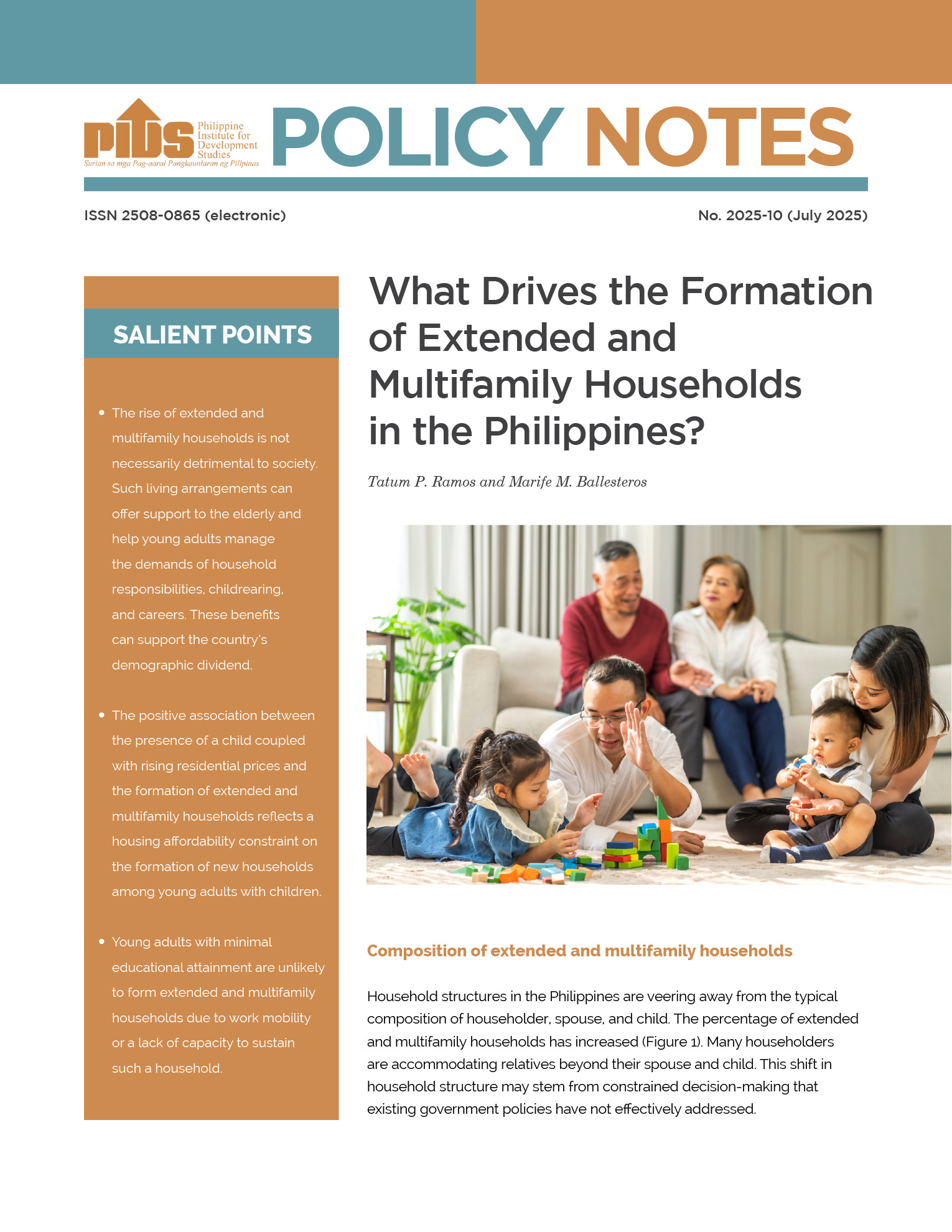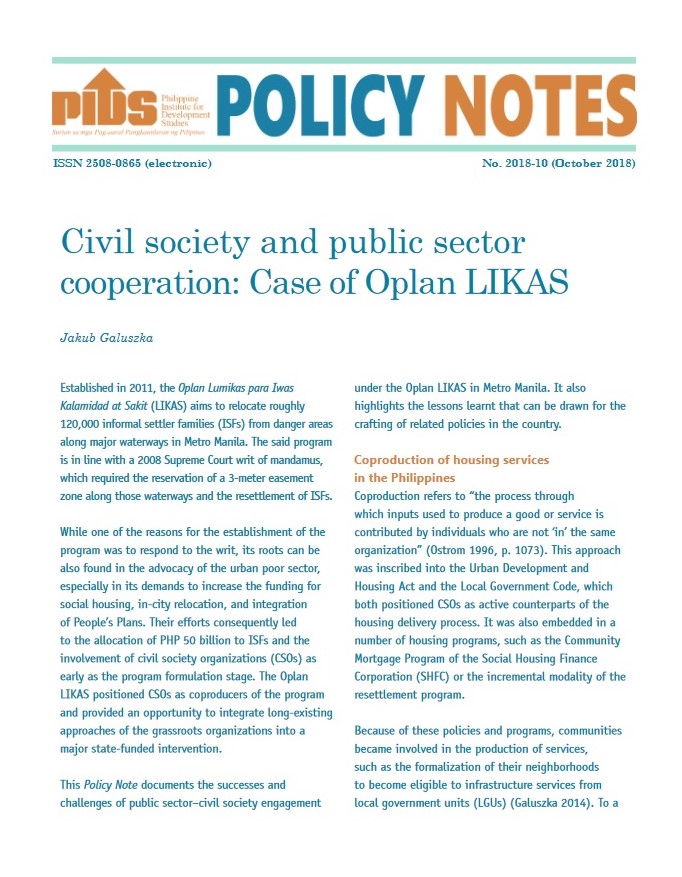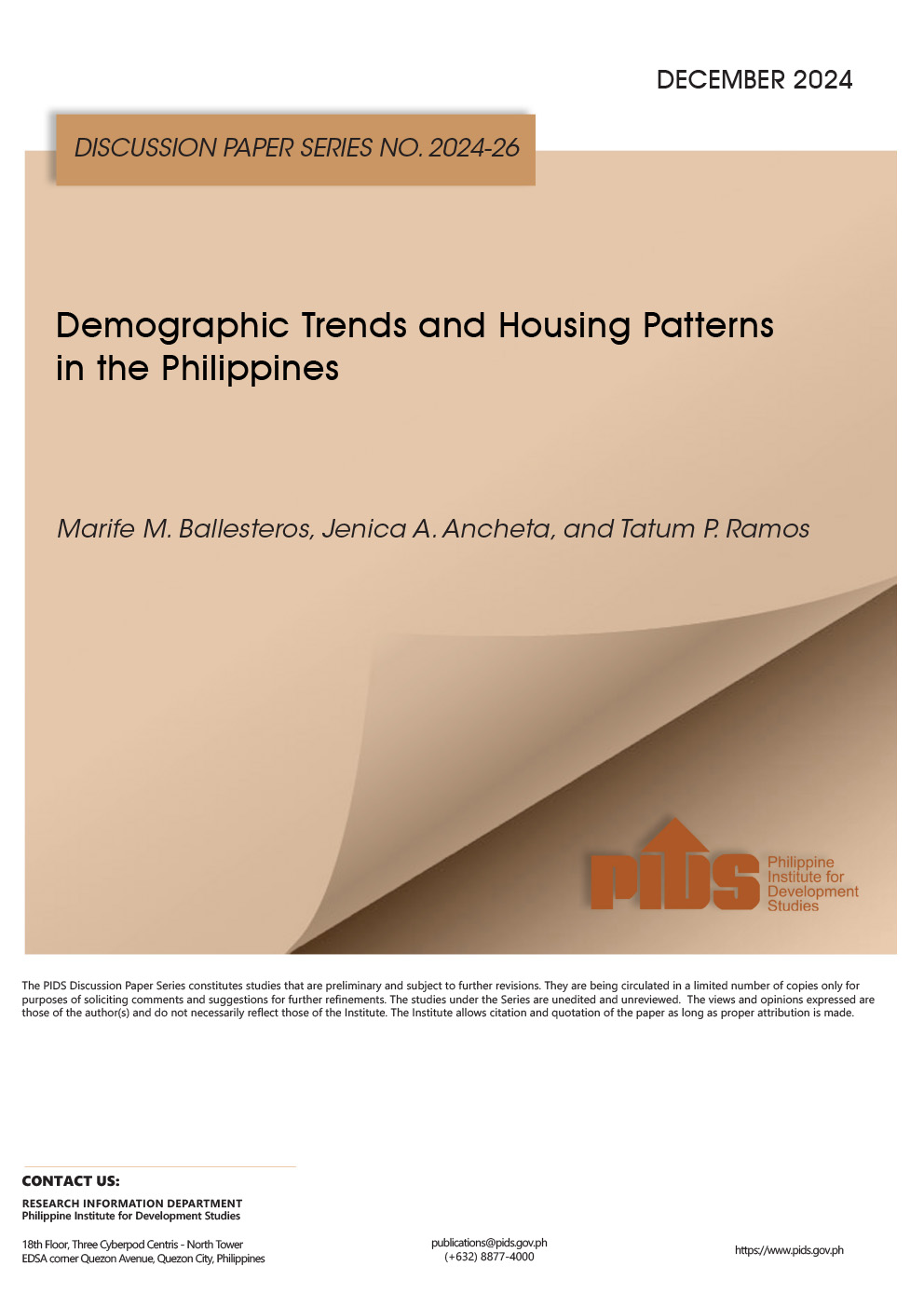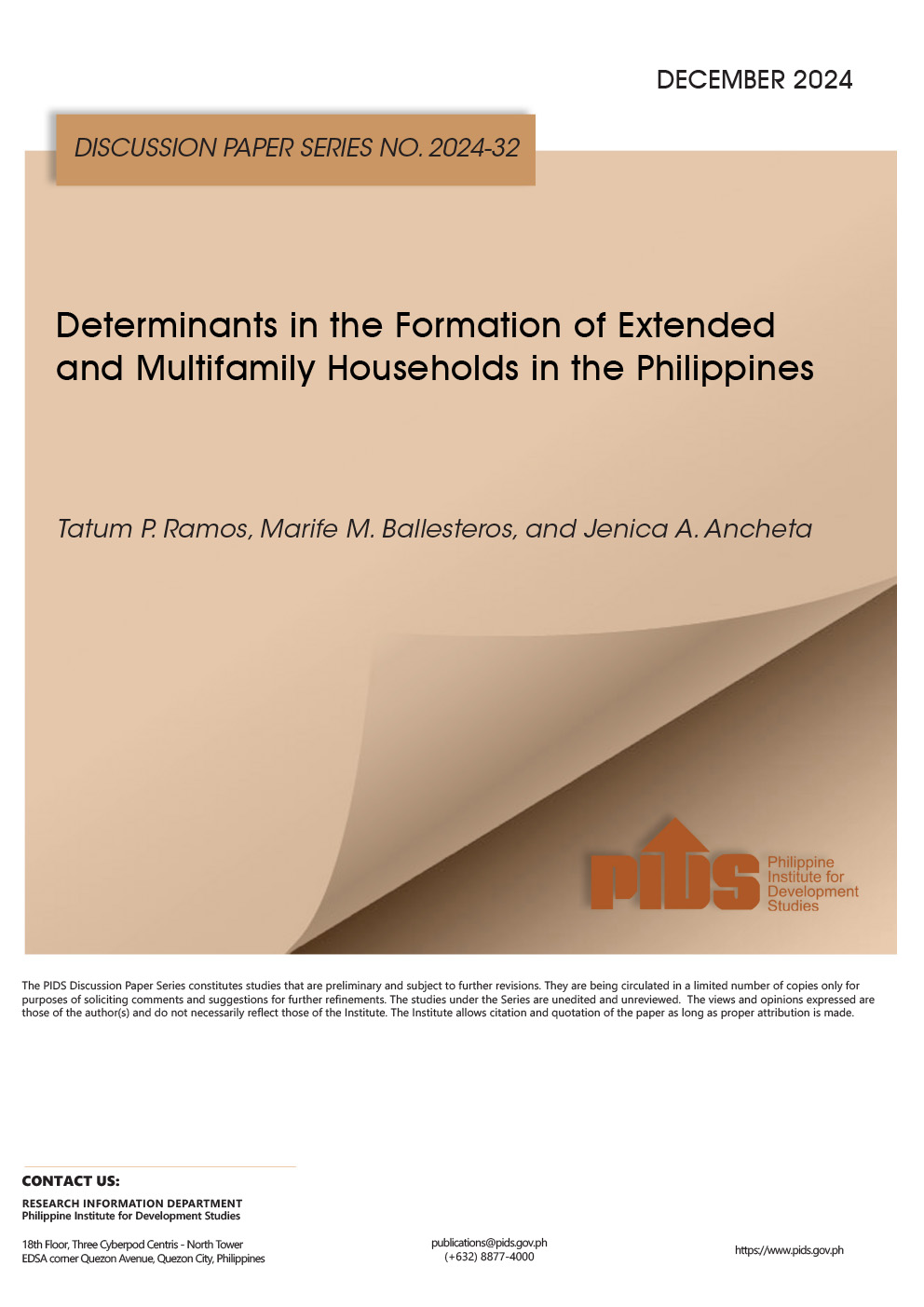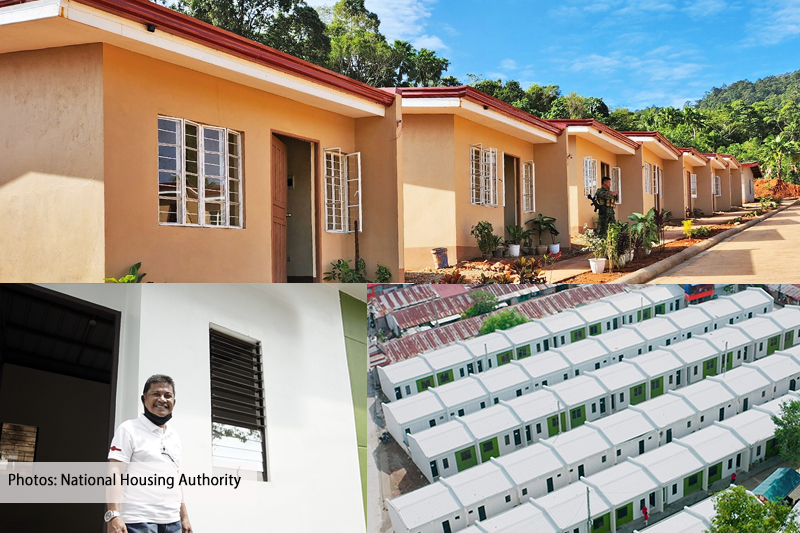This Policy Note highlights that household formation among young adults in the Philippines is strongly influenced by housing affordability, with rising residential costs prompting many to reside in extended and multifamily households. Regression analysis indicates that working women, single individuals, and those employed far from home are more likely to seek support and security through such arrangements. The presence of elderly members and children also plays a role in shaping household decisions, as elderly individuals often provide housing while young families face affordability constraints. Individuals with lower educational attainment are less likely to form extended households, possibly due to limited resources and greater mobility. Although extended living arrangements offer practical advantages such as shared caregiving and pooled resources, they often reflect constrained choices rather than intentional preferences. To address these challenges, the authors recommend improving access to affordable housing, enhancing skills development for low-educated youth, and providing support services for vulnerable groups to ease housing congestion, reduce household burdens, and boost socioeconomic outcomes.

